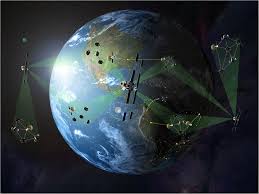Colleges Mine Data on Their Applicants
To determine ‘demonstrated interest,’ some schools are tracking how quickly prospective students open email and whether they click links (The WSJ, 1/28/2019)
Some colleges, in an effort to sort through a growing number of applications, are quietly tracking prospective students’ online interaction with the schools and considering it in deciding whom to admit.
Enrollment officers at institutions including Seton Hall University, Quinnipiac University and Dickinson College know down to the second when prospective students opened an email from the school, how long they spent reading it and whether they clicked through to any links. Boston University knows if prospective students RSVP’d online to an event—and then didn’t show.
Schools use this information to help determine what they call “demonstrated interest,” or how much consideration an applicant is giving their school. Demonstrated interest is becoming increasingly important as colleges face a rising number of applications and want to protect or improve their yields—the percentage of accepted applicants who enroll. Read More
Analysis: While this article doesn't mention location, does anyone really think this is not on the horizon? How easy it will be to monitor applicants Social Media pages to see what other colleges the applicant has visited, then using that info either for (or more likely against) a positive decision!
________________________________
In Sign of Resistance, Chinese Balk at Using Apps to Snitch on Neighbors
New technology rewards citizens for notifying authorities about illegal activity, domestic disputes and other problems, but people are wary of using it (The WSJ, December 30, 2017)
Mao Zedong once hailed Fengqiao in eastern China as a model for “mobilizing the masses” to galvanize Communist Party rule. Under President Xi Jinping, there is an app for that.
Launched in Zhejiang province last year, it offers citizens rewards for information as part of a new government effort to meld old-school totalitarian techniques with 21st century e-commerce, big data and digital surveillance.
There’s just one problem: Many people are wary of using the new technology platform.
The “Safe Zhejiang” app enables users to notify authorities of problems ranging from leaky drains and domestic disputes to traffic violations and illegal publications, in text or photographic form, as long as the informants reveal their location and identity.
In exchange, they get perks including discounts at upmarket coffee shops and coupons for taxi-hailing and music-streaming services, as well as for the Alipay online-payment system, run by the financial affiliate of local tech giant Alibaba Group Holding Ltd. Read More
Analysis: China is "leading" in generating Privacy concerns. Good to see that the public is resisting to some degree. HOWEVER (and there is always a however in life, Apple just announced (2/24/18) storing iCloud encyrption codes IN China.
_________________________________

A moviegoer who just left a screening might receive additional marketing relating to the movie they’ve just seen, such as a coupon for a Star Wars mask. Or they might get a coupon for an ad they saw earlier in the theater. If they are using the MovieTickets or Dealflicks app, and they bought their tickets through that service, they might receive an ad or coupon related to the movie as they’re waiting in line to see it. Another possibility: they might be pinged with a coupon for a discount on a large popcorn as they walk by the concession stand. The companies said the user engagement data will be shared with the theaters.
Privacy - Since LBS' inception, the risk of major privacy incidents have been a key risk. Now it's IoT's turn. This page tracks major location and IoT-related developments.
For a more detailed analysis of Location Data Privacy issues go to our sister site at http://davidhwilliams.com/locationdataprivacy.html.
LAST UPDATE: 1/28/19